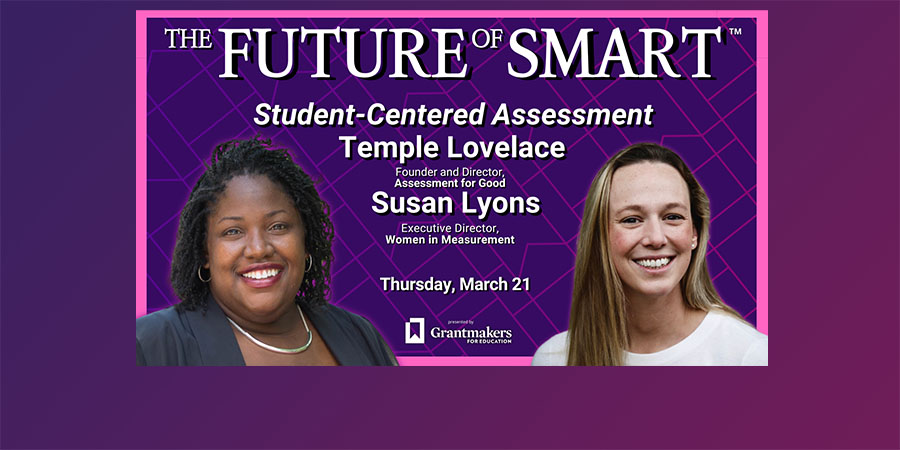The Covid Relief Playbook is a compilation of 18 evidence-based practices that have delivered improvements in instructional quality, school climate, student attendance, and academic achievement.
Resources
Knowledge begins here
but never ends.
Curated reports, deep research, informational articles, podcasts. Everything you need to stay well
informed in the world of education grantmaking.
The Future of Smart: Episode 28

Dr. Temple Lovelace, executive director of Assessment for Good, and Dr. Susan Lyons, co-founder and executive director of Women in Measurement, join The Future of Smart podcast to talk about thinking differently about measurement and systems of learning and education.
Afterschool and Summer Workforce Solutions Database
New Data on Racial Justice Grants Should Alarm—and Motivate—Education Philanthropy
FILTER RESOURCES
SEARCH RESOURCES
Covid Relief Playbook: Smart Strategies for Investing Federal Funding
Advance Placement Participation, Staffing, and Staff Training in the District of Columbia Public Schools
This REL Mid-Atlantic report and fact sheet explore strategies schools use to expand participation in the Advanced Placement program.
A Guide to Racial and Ethnic Equity Systems Indicators
This framework for measuring the impact of systems on getting better, more equitable results for youth and families, addresses cradle-to-career indicators as well as adjacent sector indicators.
2021 Kids Count Data Book
The 32nd edition of the Annie E. Casey Foundation's KIDS COUNT®️ Data Book describes how children across the United States were faring before — and during — the coronavirus pandemic.
Can critical race theory and patriotism coexist in classrooms?
Aligning Financial Sustainability with Student Access and Success: Opportunities for Private Colleges
This report highlights long-term academic and financial opportunities for small colleges by attracting and retaining those students who face the highest barriers to enrollment and completion.
Private nonprofit colleges that are smaller, less competitive, tuition-dependent, and/or have relatively low endowments are consistently identified as the most financially vulnerable, even more so during a pandemic. Yet researchers found that these schools can turn around their fiscal performance by reframing service to students with the most challenges–those from low-income households, who are first-generation and/ or are people of color–as an opportunity, rather than a challenge.
Submit A Resource
Expand your audience by expanding minds.
We believe in getting research and insights into more hands to support learning for our peers and community. Share your resources that would be useful to education grantmakers.






